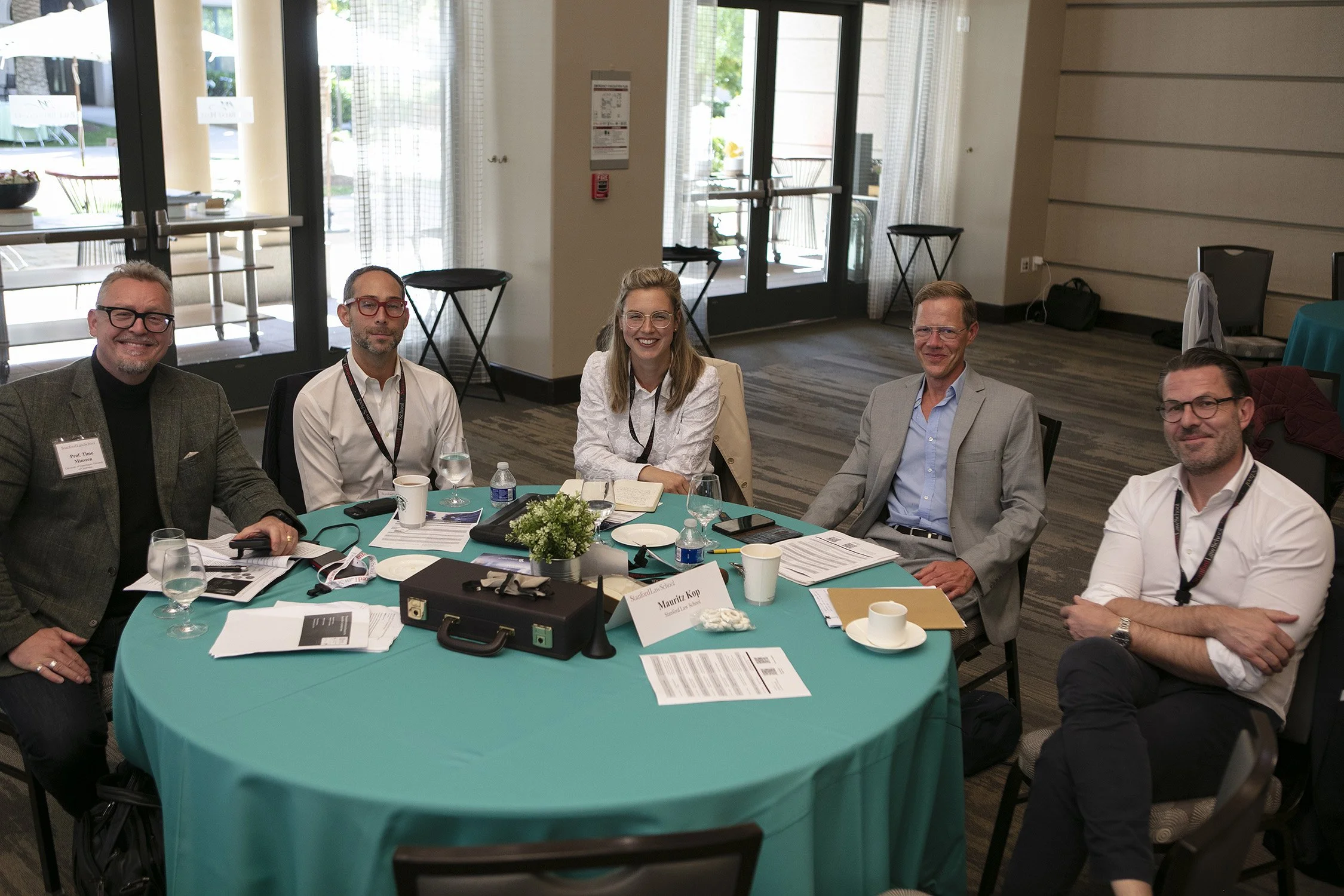Stanford, March 31, 2024—Today, we are thrilled to announce the launch of the Stanford Quantum Incubator (SQI)—a Silicon Valley business catalyst dedicated to advancing quantum technology development and adoption both regionally, nationally, and beyond. Situated at the prestigious Stanford Law School, the Stanford Quantum Incubator stands as a pivotal force, bridging the critical gap between academia and industry to foster an environment ripe for much-needed innovation and economic growth.
Stanford Quantum Incubator: Bridging Academia and Industry
Operating from the center of the emerging quantum startup scene, the Stanford Quantum Incubator will help galvanize and attract startups and university spin-offs in the quantum and AI space. It will also serve as a nexus for the broader investment community—including venture capitalists, angel investors, accelerators, banks, and funds—and other essential stakeholders, from hardware manufacturers to cloud and software providers.
The launch of SQI comes at a pivotal moment for the United States. In the wake of the 2022 Biden Executive Orders on Quantum, the CHIPS and Science Act, and the 2023 Executive Order on the Safe, Secure, and Trustworthy Development and Use of Artificial Intelligence, the imperative to cultivate a competitive and responsible quantum ecosystem has never been more pronounced. These government directives are accelerating investment in quantum information science (QIS) and catalyzing a host of new opportunities for public-private collaboration. It is essential that the quantum community capitalizes on this momentum.
We start the Stanford Quantum Incubator at a time when groundbreaking innovations in second-generation quantum technologies are making their way from the lab into the markets. These advancements span quantum computing, cryptography, sensing, simulation, and networking, with transformative applications in sectors such as Life Sciences and Healthcare, Finance, Cybersecurity, Manufacturing, Logistics, Automotive, Defense, and Space.
Inaugural Stanford SQI Fellows Bring a Wealth of Venture Capital Expertise
The success of this ambitious endeavor is anchored by the wisdom and experience of its leadership and advisors. The Stanford Quantum Incubator is honored to introduce its inaugural Fellows, a group of distinguished leaders from the worlds of venture capital, technology, and cybersecurity. The SQI team consists of Fellows Bradley Horowitz, David Hornik, Greg Berkin, and SQI Founding Director Mauritz Kop
A Catalyst for Responsible Quantum Innovation
Building on decades of combined entrepreneurial experience, SQI will develop a comprehensive suite of student/founder mentorship and support services designed to propel startups and scale-ups to success. Guidance will span sustainable business models, legal compliance, performance benchmarking, intellectual property portfolio optimization, and technology transfer. The incubator will directly address the multifaceted ethical, legal, societal, and policy challenges (Quantum-ELSPI) inherent in developing quantum hardware, software, and quantum-classical hybrids.
Central to SQI’s mission is a profound commitment to collaboration. Operating within a quadruple helix model that unites academics, industry professionals, policymakers, and end-users, SQI is positioned to become the epicenter of forward-looking, exponential quantum innovation. To this end, plans are underway to host a recurring networking workshop, in partnership with respected VC tech incubators, to both operationalize the Responsible Quantum Technology (RQT) framework and foster a globally leading, values-based quantum ecosystem.
SQI Networking Event at Stanford Law
The inaugural SQI Networking Event at Stanford Law School is set for November 1, 2024. This workshop aims to establish a local, values-based quantum network that aligns with the RQT framework, positioning the Bay Area at the heart of quantum advancement. The event promises to be an exclusive gathering, featuring presentations from luminaries in the field, startup pitches, and ample opportunities for networking. By encouraging investment and deal flow, this process will amplify responsible quantum technology development, with a clear goal of producing multiple quantum unicorns by 2030.
As we stand on the cusp of the Quantum Age, the Stanford Quantum Incubator invites the broader Silicon Valley innovation cluster to join in this pioneering, interdisciplinary endeavor. A quality-labeled ‘Quantum Made in US’ paradigm, infused with AI and quantum talent and a culture of boundless possibility, can help American companies become leaders in making scalable quantum applications that create real business value and benefit society. By facilitating university-market collaboration, SQI is poised to be an effective catalyst for leadership in the imminent quantum revolution.
For those eager to contribute to and participate in this exciting venture, we encourage you to reach out to Mauritz Kop, Founding Director of the Stanford Center for RQT, for more information. Together, we can unlock the boundless potential of quantum technology and AI, creating a future that benefits us all.
Meer lezen












